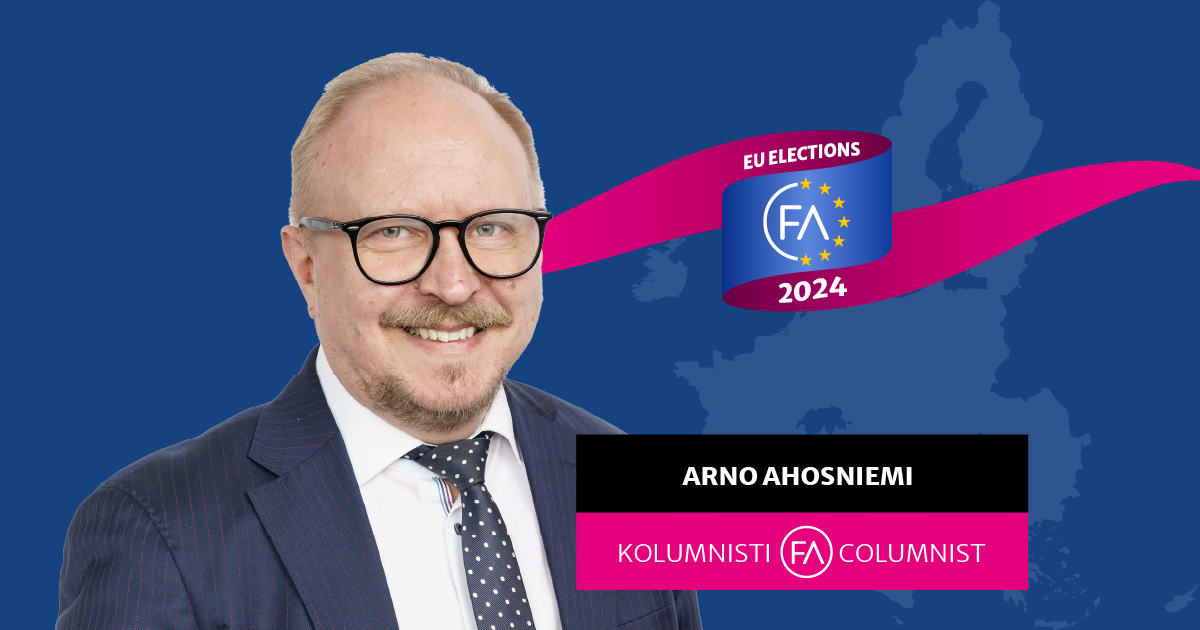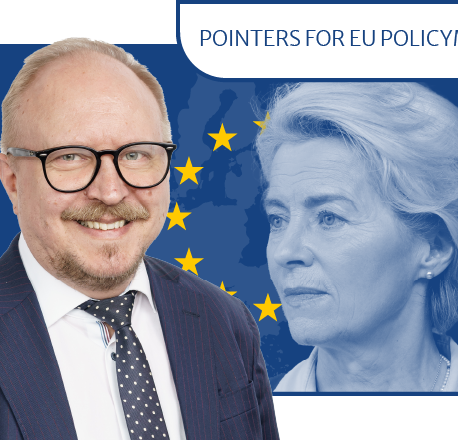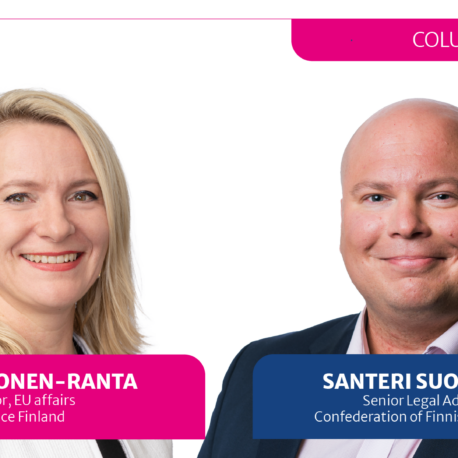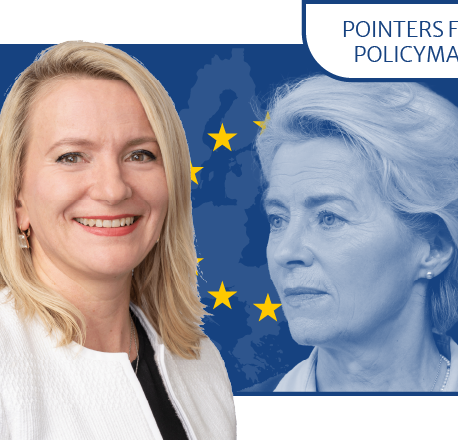
Last week was a celebration of democracy in Europe as all 27 European Union member states held elections for the European Parliament. With the provisional results of the elections announced, the 720 new MEPs selected by the citizens of Europe are now getting ready to represent their people over the upcoming five-year term.
Finns elected 15 excellent MEPs to represent us in Brussels. I wish to warmly congratulate all newly elected MEPs for their responsible and demanding new position. It is now time to roll up your sleeves and start working for a better, more prosperous Europe.
Even though the decisions made in the Parliament carry significant effects on the day-to-day lives of all EU citizens, voter turnout remained disappointingly low. It is estimated that only 51 per cent of Europeans exercised their right to vote while the rest squandered their opportunity. Finnish voter activity remained even lower than the EU average: only 42 per cent of Finns fulfilled their civic duty and cast a ballot.
Part of the low turnout can perhaps be attributed to voter fatigue from the two rounds of presidential elections held earlier this year. However, the most likely factor behind the lower-than-average voter activity in Finland is that Finns simply do not believe the European elections are as important as national parliamentary or presidential elections. This sentiment was clearly evident on the streets and in the media throughout the pre-election season.
In reality, both Finnish citizens and media should take more of an interest in the decisions that are made in the EU and the people who make these decisions. After all, EU law impacts the lives of each and every one of us. And I am not talking about new bottle caps or the legendary cucumber directive here. EU legislation impacts the day-to-day life of every EU citizen in many different ways, either directly or indirectly.
======
We should all take an interest
in the EU and exercise our right to vote.
======
The financial sector is a case in point: the majority of the sector’s regulation originates at the EU level. This matters because the significance of the financial services sector in terms of our nation’s prosperity and wellbeing cannot be overstated.
The financial sector is consistently one of the biggest taxpayers in Finland – in 2022, the sector’s companies paid a total of €900 million in corporate income tax. The taxes paid by financial sector companies would cover the government budget for university-level education, university research and vocational and general upper secondary education combined.
The figures serve as a good reminder that banks and insurers have long been among the biggest financiers of the Finnish welfare society. A profitable financial sector benefits the Finnish economy. For example, only a financially stable banking sector is able to finance investment, promote growth and drive the green transition, thus contributing to the welfare of society.
It is therefore by no means irrelevant what kind of legislation is enacted in the EU. Legislation can be beneficial for the entire EU, for Finland and for the financial sector – but only if it is prepared well. The European Parliament’s Committee on Economic and Monetary Affairs (ECON) is a prime place to influence financial sector regulation. I hope our newly elected Finnish MEPs are interested in taking up a place in this highly influential committee.
======
Regulation prepared in the EU should be equally
applicable in the Finnish and Dutch financial sectors
and in the financial sectors of Bulgaria and Italy.
======
Now that the demanding election campaign season is a thing of the past, it is time for our newly elected MEPs to take a breather and enjoy the Finnish summer. Their work for the prosperity of Europe and Finland will begin in earnest in the autumn. For the upcoming term, I offer the following pointers:
1) Regulation that suits one member state might not suit another – Finland must be an active member in a strong and unified EU while highlighting our national specificities.
2) Our money must not be spent recklessly – the limits of economic risk sharing must be clearly defined.
3) The uncontrollable swell of new EU regulation must be stopped –the focus in the next EU term must be on better and more moderate regulation.
Still have questions?
|Contact the columnist
Looking for more?
Other articles on the topic

Finance Finland’s CEO Ahosniemi: The Commission makes grand declarations for better regulation but fails to back them up with concrete measures in its work programme

The EU needs to build a more favourable investment climate

European Commission is taking action to simplify regulation – is Finland lagging behind?

The Commission must tighten the screw on fraud prevention – Social media platforms and online marketplaces must also be involved




